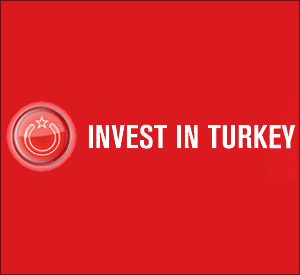Asia > Central Asia > Government
Government in Central Asia
-
Parliamentary elections will be held in Kyrgyzstan on October 4 this year by the president's decree.
KYRGYZSTAN, 2015/07/28 Kyrgyzstan's President Almazbek Atambayev has signed an executive order on July 25, ordering the Central Election Commission "to ensure that the election is free, equitable, and transparent in accordance with the country’s law," reported Trend. Atambayev instructed the government to allocate the necessary funds to prepare for and conduct the election. The president as well calls for the government to take required measures to ensure the citizens’ rights and freedoms, and protect public order and security during the voting process. -
PM's resignation not to delay Kyrgyzstan’s integration into EEU
KYRGYZSTAN, 2015/04/25 Kyrgyz Prime Minister Joomart Otorbaev’s resignation has sparked speculations that the country's integration into the Eurasian Economic Union will be delayed. Though there were some rumors about his resignation at the end of last year, it was assumed that Otorbaev would remain in his position until May 8, the date scheduled for the signing of documents confirming Kyrgyztan's membership in the EEU. Kyrgyzstan has signed an accession agreement to join the Russian-led Eurasia EEU last December, aiming to join the organization in May 2015. Jyldyzkan Joldoshova, the leader of the Ata-Jurt parliamentary faction blamed Otorbayev for leaving his post before Kyrgyzstan could officially join the EEU, Kyrgyz media reported. -
Kyrgyzstan’s premier resigns after a year of activity
KYRGYZSTAN, 2015/04/24 Next a year of activity, Joomart Otorbaev, Kyrgyzstan’s prime minister announced his resignation even though lawmakers rated his activities for 2014 as satisfactory. Otorbaev announced his decision next he made a statement on the activity of the government for 2014 in a parliament session on April 23 , Kyrgyz media reported. “I thank you for rating the government's work satisfactory. No monopoly of power can exist in a democratic country. Therefore, the branch of government should be shaken again. That is why I am declaring my resignation,” he said. -
Uzbekistan’s presidential election held at very high level
UZBEKISTAN, 2015/03/30 Azerbaijani delegation observing the presidential election in Uzbekistan didn’t register any violation of law during the voting, Aydin Abbasov, a member of the delegation, an Azerbaijani MP, has told Trend. He said that currently the Azerbaijani delegation is at the polling stations in Tashkent, the capital of Uzbekistan. “We are continuously observing the election,” said Abbasov. “I can tell in all sincerity that the election is organized at a very high level, in line with the laws.” -
Tajikistan’s ruling party wins parliament elections
TAJIKISTAN , 2015/03/06 The ruling People's Democratic Party of Tajikistan won the parliamentary elections held on March 1. The People's Democratic Party, led by President Emomali Rahmon, won 65.2 % of vote, RIA Novosti reported with reference to the CEC. The other parties that overcame the five-% barrier were the Socialist Party, which received 5.5 % of the vote, the Agrarian Party with 11.8 % and the Economic Reform Party with 7.6 % of the vote. "The elections were free and democratic in accordance with the laws of Tajikistan. It was attended by 3,791,827 voters, representing 87.7 % of the total number of voters," said Shermuhammad Shohiyon, chairman of the Central Commission for Elections and Referenda at a press conference in Dushanba on March 2. -
Tashkent, OSCE/ODIHR mull preparations for presidential election
UZBEKISTAN, 2015/03/06 Uzbek Foreign Minister Abdulaziz Kamilov and Tana de Zulueta, the chief of the limited election observation mission of the OSCE Office for Democratic Institutions and Human Rights (ODIHR) discussed the relevant issues of cooperation in preparing and holding the presidential election. The sides said that the pre-election campaign, which has entered into the active phase, is being held under the conditions of democratic renewal and liberalization, political stability and economic development, interreligious and international peace and harmony in the country, according to the ministry’s statement. -
OIC monitors preparation for Uzbek elections
UZBEKISTAN, 2014/12/21 An observer mission of the Organization of Islamic Cooperation began its activity as part of monitoring the parliamentary election in Uzbekistan, the Uzbek CEC told Trend. The mission is headed by Ali Abolhassani, Director of the OIC Department of Political Affairs. The mission includes the representatives of Turkey, Iran, Iraq, Saudi Arabia, Senegal, Sudan and other nations. The OIC has been monitoring the election in member-states since 2006. The OIC mission observed the election in Azerbaijan, Algeria, Guinea, Kyrgyzstan, Mauritania, Mozambique, Nigeria, Sudan, Tunisia and other nations from 2006 to 2014, inclunding in Uzbekistan in 2009. The election to the Legislative Chamber of Oliy Majlis (lower home of the Uzbek parliament) is to take place on December 21. -
Uzbekistan ready for parliamentary elections
UZBEKISTAN, 2014/12/18 Uzbekistan is ready to hold elections to the legislative chamber of the parliament on December 21, said Mirza-Ulugbek Abdusalomov, the Chairman of Uzbekistan’s Central Election Commission (CEC), on December 17. He made the remarks at a briefing for the diplomatic corps, representatives of international organizations accredited as observers, and the media. “The activity program for preparation and holding of elections, adopted in May, allowed organizing all electoral process at a high democracy level, to provide conditions for full realization of the citizens’ electoral rights and the active participation of political parties in the formation of public bodies,” he said. He said some 135 constituencies, for an average of 154,000 voters in one district, have been created. -
President Nazarbayev says SCO gaining more power
KAZAKHSTAN, 2014/12/17 The Shanghai Cooperation Organization (SCO) is gaining political weight and economic power, said the Kazakh President Nursultan Nazarbayev Dec. 15 at a conference with the heads of government of the SCO member states. Nazarbayev said the conference of the heads of governments is being held in Kazakhstan for the third time, adding, “The organization [SCO] is gaining political weight and economic power.” He said the SCO’s voice today is heard everywhere. -
Why the RCEP matters for Asia and the world
WESTERN ASIA, 2013/05/16 Negotiations for the Trans-Pacific Partnership (TPP) and the Transatlantic Trade and Investment Partnership (TTIP) are grabbing headlines around the world. Meanwhile, Asia’s own mega-regional trade transaction — the Regional Comprehensive Economic Partnership (RCEP) — is quietly being negotiated. But it deserves additional press: the RCEP could create the world’s major trading bloc and have significant implications for the world economy. So what would the RCEP cover and who will it benefit? What are the barriers to success?
- Trending Articles
-
- AUSTRALIA: Australia taxes foreign home buyers as affordability bites
- CHINA: United States sees China investment talks ‘productive’ after new offers
- SERBIA: China’s Xi sees Serbia as milestone on new ‘Silk Road’
- INDIA: Indian central bank chief to step down in surprise move
- THAILAND: Foreign investment plummets in junta ruled Thailand
- SOUTH AFRICA: South Africa to extend ICT reach







